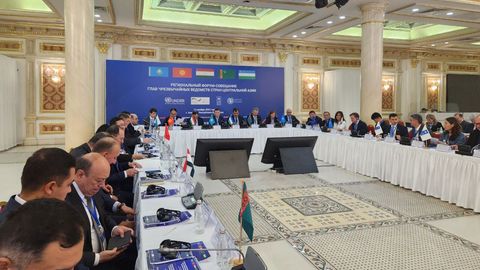Kazakhstan, Serbia deepen partnership during President Vucic’s Astana visit
18:57 / 01.03.2026
Uzbek citizens rank third among irregular migrants detained in Türkiye in 2025
16:32 / 01.03.2026
Uzbekistan strengthens fuel market oversight ahead of spring planting season
15:28 / 01.03.2026
Uzbekistan launches $4.6mn UNDP–Japan water resilience project in Aral Sea region
13:55 / 01.03.2026
MFA confirms no Uzbek casualties in Iran as tensions escalate
12:00 / 01.03.2026
Recommendations
Menu
Good news:
Tags
Grow your business with us
Advertise on Daryo.uzIndividual approach and exclusive materials
Ad-free site readingSubscribe
25 000 sum per month






Comments
To leave a comment, first